Wineburg, Samuel S.
Historical thinking and other unnatural acts : charting the future of teaching the past / Sam Wineburg.
p. cm.(Critical perspectives on the past)
Includes bibliographical references.
ISBN 1-56639-855-X (cloth : alk. paper)ISBN 1-56639-856-8 (pbk. : alk. paper)
HistoryStudy and teachingPhilosophy. United StatesHistoryStudy and teaching. Historiography. Culture conflictUnited States. I. Title. II. Series.
Introduction
Understanding Historical Understanding
I dentify the source of the following statement:
Surely a grade of 33 in 100 on the simplest and most obvious facts of American history is not a record in which any high school can take pride.
The above characterization of high school student' historical knowledge comes from:
(a) Ravitch and Finn's report on the 1987 National Assessment of Educational Progress, in which they argued that student's test scores place them at risk of being gravely handicapped byignorance upon entry into adulthood, citizenship, and parenthood.
(b) The 1976 New York Times test of American youth, published under the banner Times Test Shows Knowledge of American History Limited.
(c) Reports on the 1942 New York Times history exam that prompted Allan Nevins to write that high school students are all too ignorant of American history.
(d) None of the above.
The correct answer is (d), none of the above. J. Carleton Bell and David McCollum, who in 1917 tested 668 Texas high school students and published their findings in the fledging Journal of Educational Psychology , differ little from those of subsequent commentators. Considering the vast differences between those who attended high school in 1917 and the near-universal enrollments of today, the stability of student's ignorance is amazing. The whole world has turned on its head, but one thing has stayed the same: Kids don't know history.
Or so the conventional story goes. But it is a story that rests on shaky foundations. It may be that we have spent so much time discovering (only to rediscover over and over and over) what students don't know that we have neglected more useful questions about young people's historical knowledge. For example, what do students know about the past? What sources beyond teachers and textbooks contribute to their understanding? How do they make meaning from complex historical documents? How do they navigate between images of the past learned in the home and those encountered in school? How do they situate their own personal histories in the context of national and world history?
These questions have rarely been asked. From Bell and McCollum's 1917 survey to the latest national assessments, efforts to understand children's historical knowledge have followed a well-beaten path. Adults come together to determine what facts kids should know. They administer a test. When results come back showing that students did poorly, they seldom ask what youngsters might have been thinking or how students might have interpreted the task before them. Deliberations about children's minds resemble those of an entomologist peering at an ant: the ant (or child) is viewed as a species not only smaller but vastly inferior to ourselves. We look at it from the outside, measure it, and assign it a number. And, with reference to young people, we quickly forget the leap of faith between the statement that students don't know what we want them to know and the conclusion that they don't know anything at all.
The strategy of labeling, rather than trying to understand, student's historical knowledge has led to arid discussions of pedagogy. Students would know more history, according to one common explanation, if teachers taught content rather than skills. For commentators like Arthur Bestor, writing in 1953, or Sean Wilentz, writing in 1996, the bogeyman is the social studies lobby (one wonders what kind of lobby worked Texas backrooms in 1917, something neither Bestor nor Wilentz
Beyond the lurid headlines and hand-wringing lies a more basic question: What does the teaching of history contribute to a democratic society? Or, as my colleague Gaea Leinhardt puts it, What does history contribute to social literacy? What ways of thinking, writing, and questioning would be lost if we eliminated history from the curriculum?
This is not a new question, of course. Woodrow Wilson addressed it when he claimed that history endows us with the invaluable mental power we call judgment, and similar sentiments echo whenever the American Historical Association commissions a study on the state of the undergraduate major. But the role of history as a tool for changing how we think, for promoting a literacy not of names and dates but of discernment, judgment, and caution, does not receive prime billing in the public sphere.
The essays in this book begin with the basic assumption that history teaches us a way to make choices, to balance opinions, to tell stories, and to become uneasywhen necessaryabout the stories we tell. This history is worlds apart from Rush Limbaugh's version: History is real simple. You know what history is? It's what happened.
Limbaugh's history served me well in high school. History was figuring out what topics were on the test and how to psyche out Frances T. Peritano, Miss Peritano, in crafting an essay response. I flourished in this system. It wasn't until my freshman year at Brown University, in Jacob Neusner's history of religion course, that I began to worry about my ability as a history student. Neusner (an experience not to be missed, said the unofficial course guide) began the course at the beginning, literally. What is the text doing , he asked about Genesis 1, as a hundred students or so collectively quaked in their seats. One after another, baffled freshmen summarized the text, only to have Neusner strike his fist on the podium: Doing , not saying. What is the text doing ?
When I found myself teaching history to middle and high school students some years later, I realized that I too could exhort students to examine the polemic of the text (a term Neusner imprinted on my consciousness). But apart from the tried-and-true pedagogic strategy of read it again (or, alternatively, read it slowly or read it to your partner or read it in groups), I had no clue why some students could, and others could not, arrive at interpretations that seemed to me self-evident.
Books on teaching provided few clues. Textbooks on the psychology of learning, as well as how-to books like McKeachie's Teaching Tips were concerned mostly with techniquewhen to insert an example into a lecture, how to do group work, or how to ask questions at different levels of Bloom's Taxonomy. But generic issues were not what irked me. I wanted to know about the specific challenges that historical texts posed to young people, and what prevented them from reading these texts more critically.

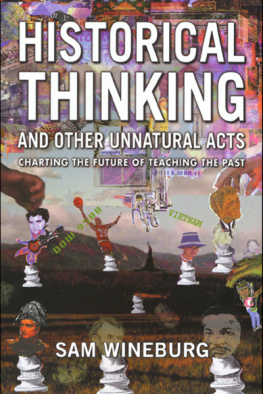
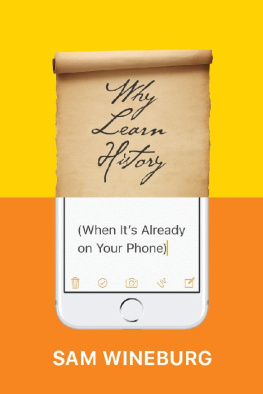
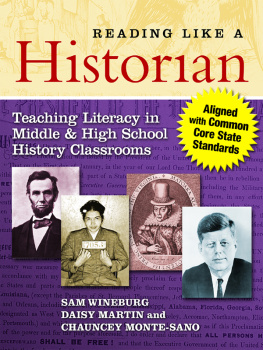

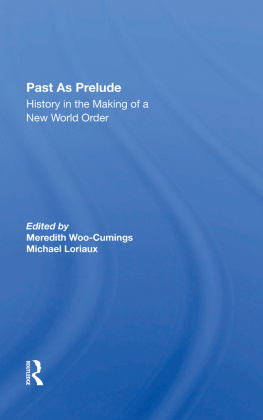
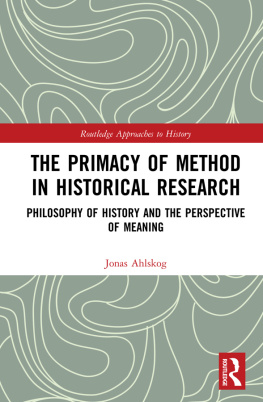
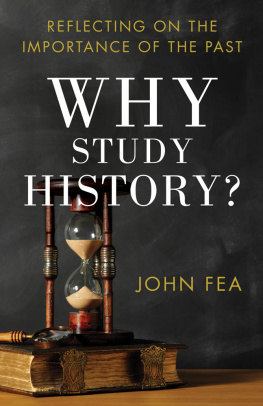
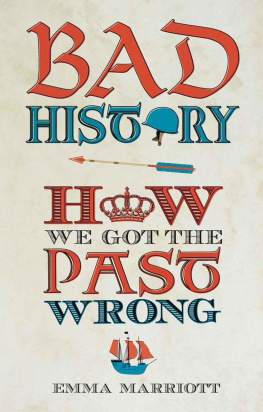

 The paper used in this publication meets the requirements of the American National Standard for Information SciencesPermanence of Paper for Printed Library Materials, ANSI Z39.481984.
The paper used in this publication meets the requirements of the American National Standard for Information SciencesPermanence of Paper for Printed Library Materials, ANSI Z39.481984.